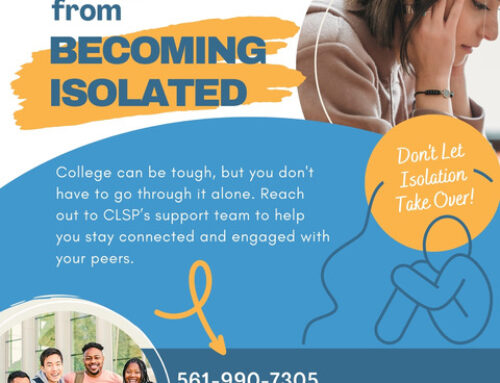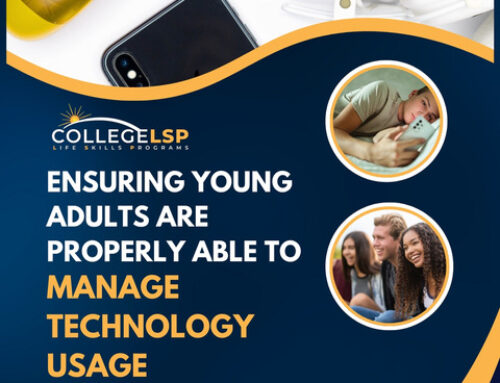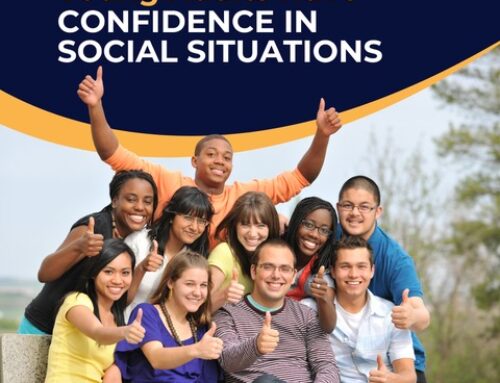A shirt here, a shoe there, a plate still in the sink…
Having roommates can be hard, especially when you are sharing a small space that resembles a shoebox more than a room. A mess can be more easily seen in a dorm since most don’t even have a curtain to separate you, and going from having your own rules in a home where people knew what you liked to a completely new place with a person your age who may not understand boundaries can be stressful. For one young man, his roommate was always leaving stuff on his side of the room and leaving the space in a way he didn’t like, but instead of vocalizing his concerns, he just kept it all inside. He was used to his mother always fixing things and making sure people respected his space because he would easily become anxious when things are not in heir place, so now that he was on his own, he didn’t know how to approach the situation, so he decided to not bring it up at all and kept the frustration inside. This then caused him to grow more and more unhappy at college. Since he didn’t have his parent to handle the situation for him, he dropped out so he could be back in a place where he didn’t have to deal with conflicts that arise with peers, leaving his mother worried that her son would live with her forever. Work, school, and life come with conflict, and if he is unable to handle it, she fears he will be unable to ever handle independent life, leading her to the realization that her son has never developed adult like conflict resolution skills.
When becoming independent, it is important for young adults to feel prepared enough to deal with conflict on their own. Since they will be in an environment that is most likely not catered to their every want and need, they need to be capable of expressing their emotions to their peers in a way that is age appropriate and respectful. Whether it’s their roommate being messy and loud or something not going their way, young adults need to be confident in their abilities to resolve conflicts. If not, their issues can either just become bottled up, causing them to become anxious or depressed, or they will explode because they are unaware of the proper way to handle the situation. If a young adult is incapable of doing so, then they may find it difficult to make and maintain relationships or resolve issues in a way that is calm and respectful, leading to their isolation since no one wants to be screamed at or ignored every time they are upsetting someone.
A source explains how “Most teens and adults with high-functioning autism fear rejection and will do what they can to avoid it at all costs. So, when conflict arises, it can be extremely upsetting because it triggers feelings of rejection and shame.” (Oswald, 2021). However, if they keep running from conflict rather than choosing to facing it, no issue would ever be resolved, leading to even more social and emotional problems, and this can eventually cause them to drop out of school or worse, since they are unable to handle the situation any longer. According to a quote in a cited source, “[Life challenged] students becoming overwhelmed is “a huge problem,” Greenburg says…The problem for parents is that when their kids reach college age, they don’t want to hear from you, and they don’t realize how dysregulated they’re becoming. They may end up back home, having dropped out of college.” (Arky, 2022). This can be especially common for those with life challenges such as ADHD, Autism, “Asperger’s,” learning disabilities, anxiety disorders, etc., since managing conflict on their own may be extremely difficult.
At the College Life Skills Program, we professionally coach young adults who are college bound, in college, and even after college to develop skills such as conflict resolution to ensure they flourish in independent life. Our team of Doctoral and Master level professionals uses our individualized, proprietary, evidence-based approaches developed with the real-life experience of thousands of students over three decades to aid young adults in their journey to independence. So, if you’re worried that the inability to resolve conflict independently may cause your young adult to fall behind, the CollegeLSP is more than qualified to help.
Dr. Eric J. Nach, Ph.D., M.Ed., A.S.D.C., is a Developmental and Behavioral Specialist who specializes in Autism, ADHD and related disorders. Dr. Nach is the founder of the College Life Skills Program where he and his team of professional’s help develop the Emotional Maturity, Executive Functioning, Life Skill and Social Abilities of college students and those high school students preparing for college. The CollegeLSP is a subsidiary program of the Support For Students Growth Center, located in Boca Raton, FL and providing services nationwide.
Oswald, D. T. (2023, February 13). Dealing with conflict on the autism spectrum. Tasha Oswald. Retrieved February 21, 2023, from https://opendoorstherapy.com/dealing-with-conflict-on-the-autism-spectrum/.
Arky, B. (2022, July 12). Going to college with autism. Child Mind Institute. Retrieved September 29, 2022, from https://childmind.org/article/going-to-college-with-autism/#becoming-overwhelmed




